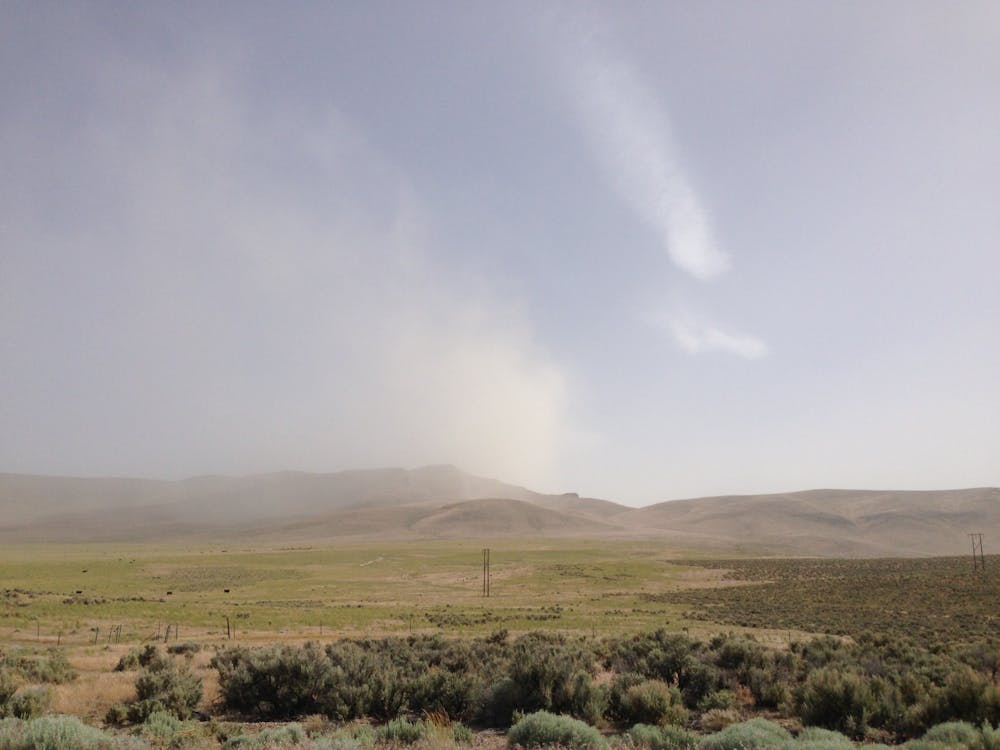The University sold the majority of its stake in the Lithium Americas Corporation during the second quarter of 2022, according to Securities and Exchange Commission (SEC) filings released over the summer. As of last filing, the University’s holdings in the company are around $4.5 million, down from $92 million earlier this year.
Still, Protect Thacker Pass, a Nevada-based coalition of activists, has argued that the University’s holdings in the company remain unacceptable.
Max Wilbert, the co-founder of Protect Thacker Pass, said, “We need far deeper and more significant change, including an end to car manufacturing, to stop the [ecological] crisis we're in.” According to the U.S. Department of Energy, lithium is used in most of today’s electric vehicles.
Lithium Americas is set to open a mine on Thacker Pass, a sacred site to the Northern Paiute and Western Shoshone peoples in Northern Nevada. According to the Nevada Division of Environmental Protection (NDEP), Thacker Pass is one of the largest lithium deposits in the United States.
In a recent op-ed in The Daily Princetonian, Protect Thacker Pass argued that the mine threatens the sacred lands on the site of a massacre of 31 Indigenous people by the U.S. Army in 1865. ABC News has also reported that the Reno-Sparks Indian Colony and the Burns Paiute Tribe have accused the Bureau of Land Management of “failing to consult with them about an Historic Properties Treatment Plan guiding the initial archaeological dig required before mine construction can begin.”
In an email to the ‘Prince,’ Wilbert condemned Lithium Americas’ business practices. “Lithium Americas [is] a corporation which has been implicated in human rights abuses overseas and is violating the rights of [I]ndigenous people in this country right now,” he wrote.
Daranda Hinkey, a Native activist whose family has lived at the Thacker Pass for generations, told The Guardian that building a mine there is “like putting a lithium mine on Arlington cemetery.” Activists have continually protested the site of the mines, making public comments and filing lawsuits to protect the site.
According to The Guardian, the claim that the massacre took place at Thacker Pass is disputed. Two Indigenous groups have lost federal lawsuits last year to block the mine as a significant historical site, with the court stating that “no human remains have been found as evidence of a massacre site there.”
Despite the University selling the majority of its stake in the company, Wilbert argued after the sale that Princeton is still a “major investor” and is not doing enough to divest from mining companies.
“Princeton University is actively profiting from an industry that is violating human rights, destroying habitat, and polluting our planet,” Wilbert wrote. “The [U]niversity should divest from mining companies just as it has divested from fossil fuels.”
The University recently dissociated from 90 fossil fuel companies, including Exxon Mobil, and wrote in a recent statement that the Princeton University Investment Company (PRINCO) would eliminate holdings in publicly traded fossil fuel companies in the endowment.
The University itself, as opposed to PRINCO, is currently a stakeholder in only three companies, one of which is Lithium Americas.

Asked for comment, University Spokesperson Michael Hotchkiss told the ‘Prince’ that the University does not comment on individual holdings of the endowment.
During the first quarter of 2022, the University was the fourth-largest investor in Lithium Americas, holding approximately 2.4 million shares worth $92 million. After its sale earlier this year, as of the latest SEC filing, it holds only 224,000 shares, valued at $4.5 million. The University’s endowment is currently worth $37.7 billion.
In an email to the ‘Prince,’ Virginia Morgan, the senior director of investor relations and environmental sustainability governance (ESG) at Lithium Americas, emphasized the company’s relationship with the University as an investor.
“Lithium Americas is pleased to have the support of all our shareholders, including Princeton,” Morgan wrote. “Our objective is to maximize shareholder value by executing our lithium projects in Argentina and the US to production.”
Morgan also referred the ‘Prince’ to the company’s latest corporate presentation for more details on their products and execution. With regard to the Nevada mines in particular, Morgan wrote that the Thacker Pass project is “focused on developing the largest known lithium deposit in North America,” and the company expects to “start early-works construction in 2022.”
SEC filings for the most recent quarter will likely be released in November 2022, which will provide the most up-to-date information on the University’s stock holdings.
Lia Opperman is an Assistant News Editor who often covers University affairs, student life, and local news. She can be reached at liaopperman@princeton.edu, on Instagram @liamariaaaa, or on Twitter @oppermanlia.
Miriam Waldvogel is a contributing news writer for the ‘Prince.’ She can be reached at miriamwaldvogel@princeton.edu or on Instagram @miriam.waldvogel.








